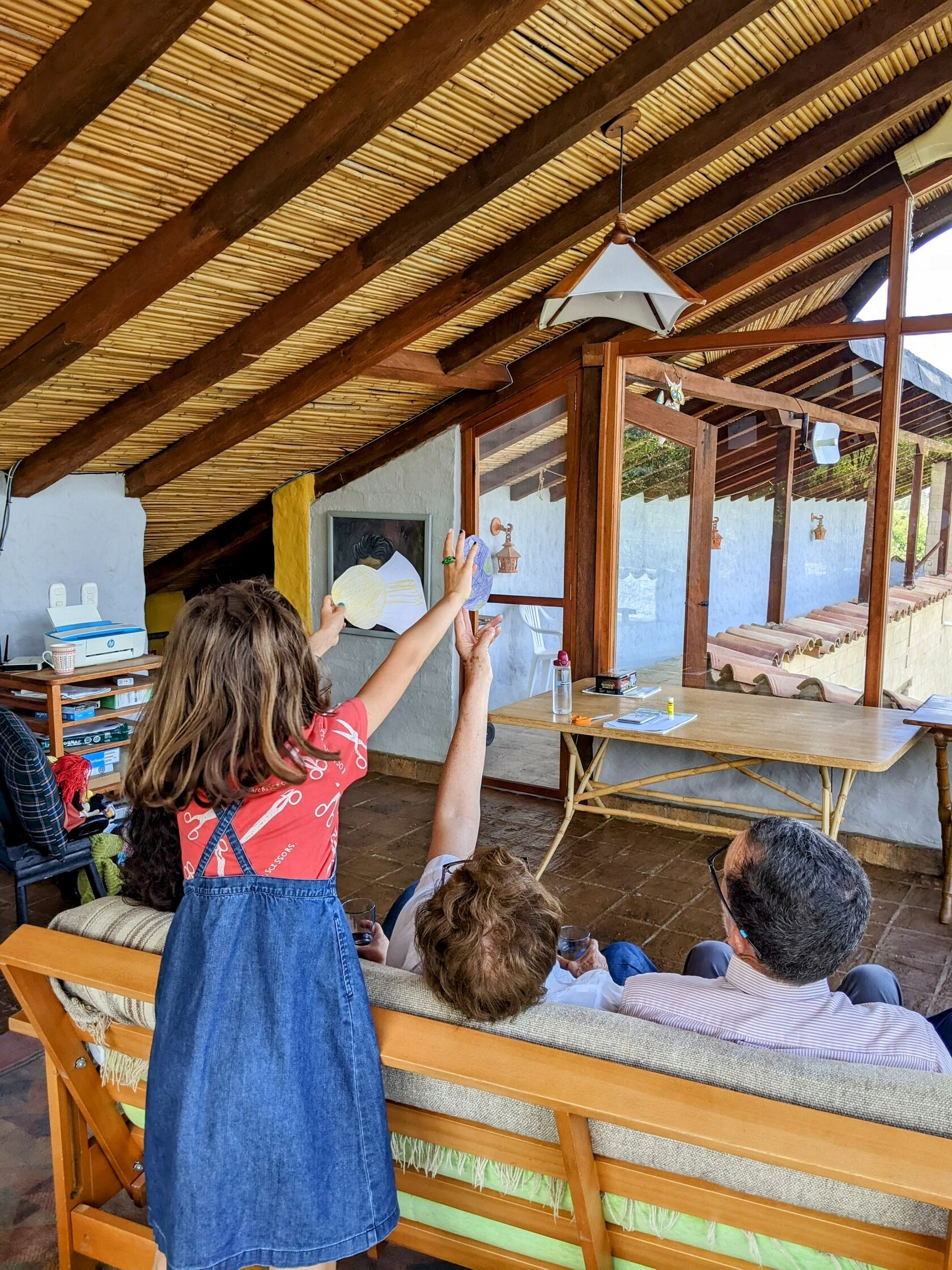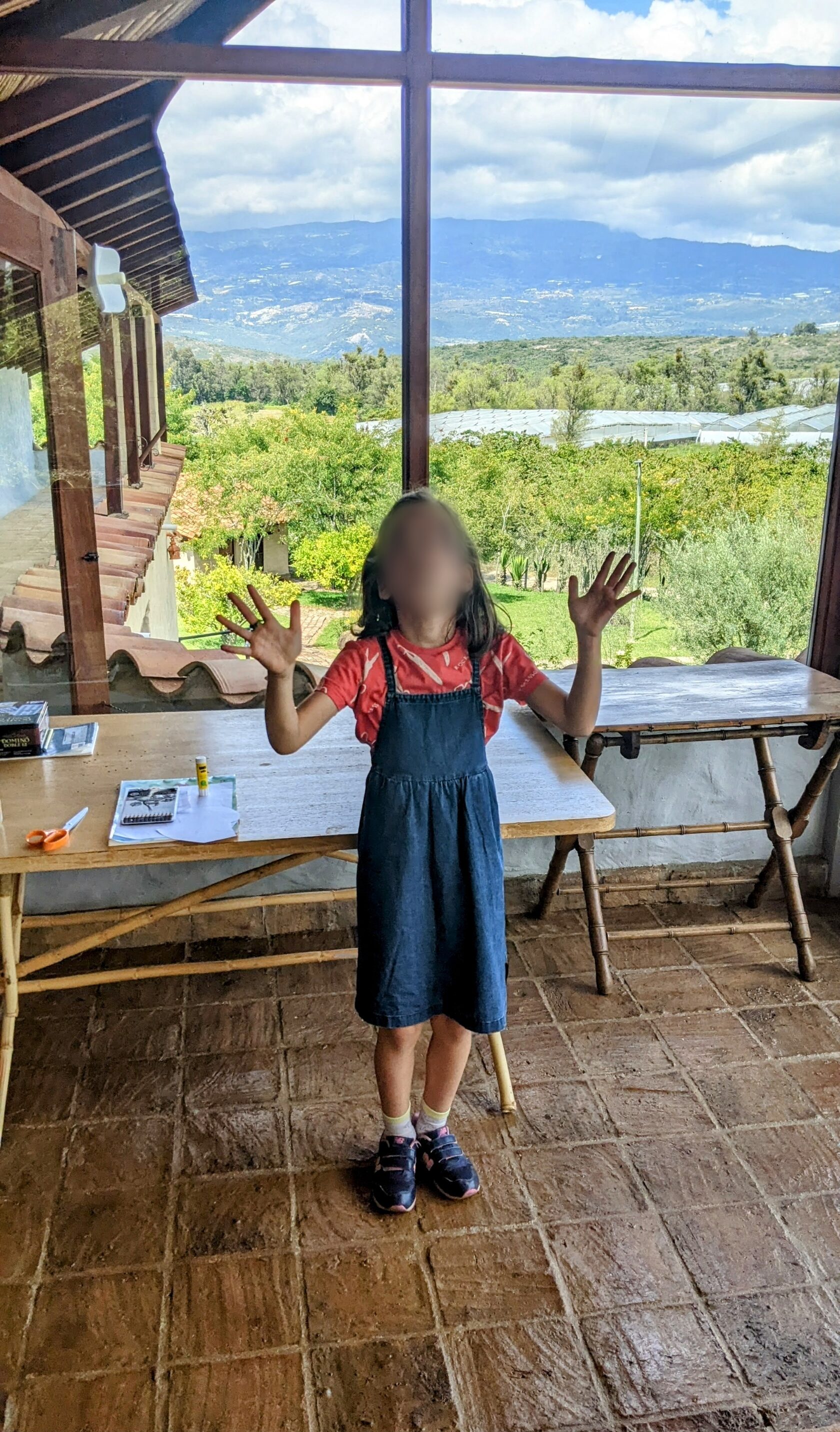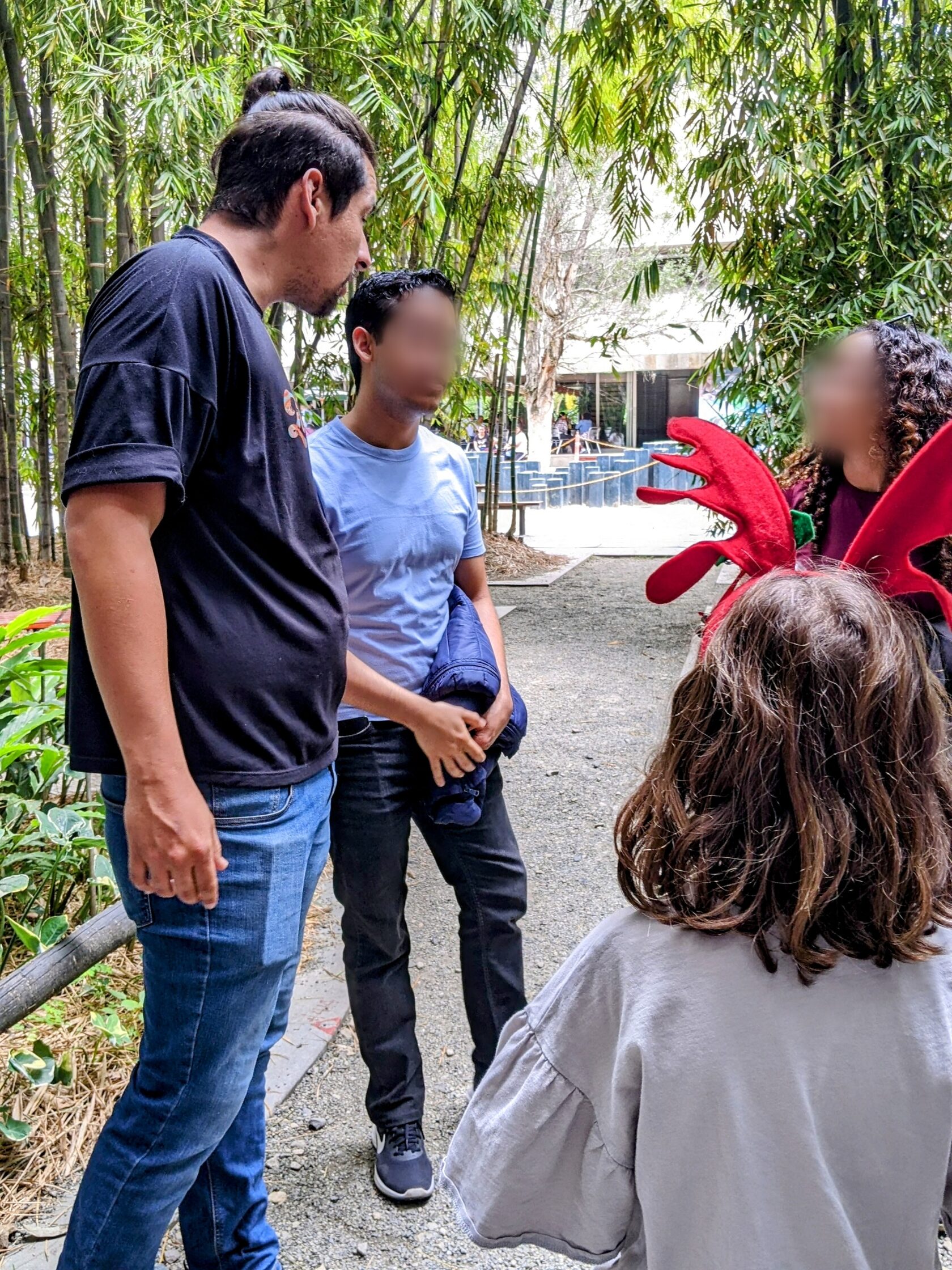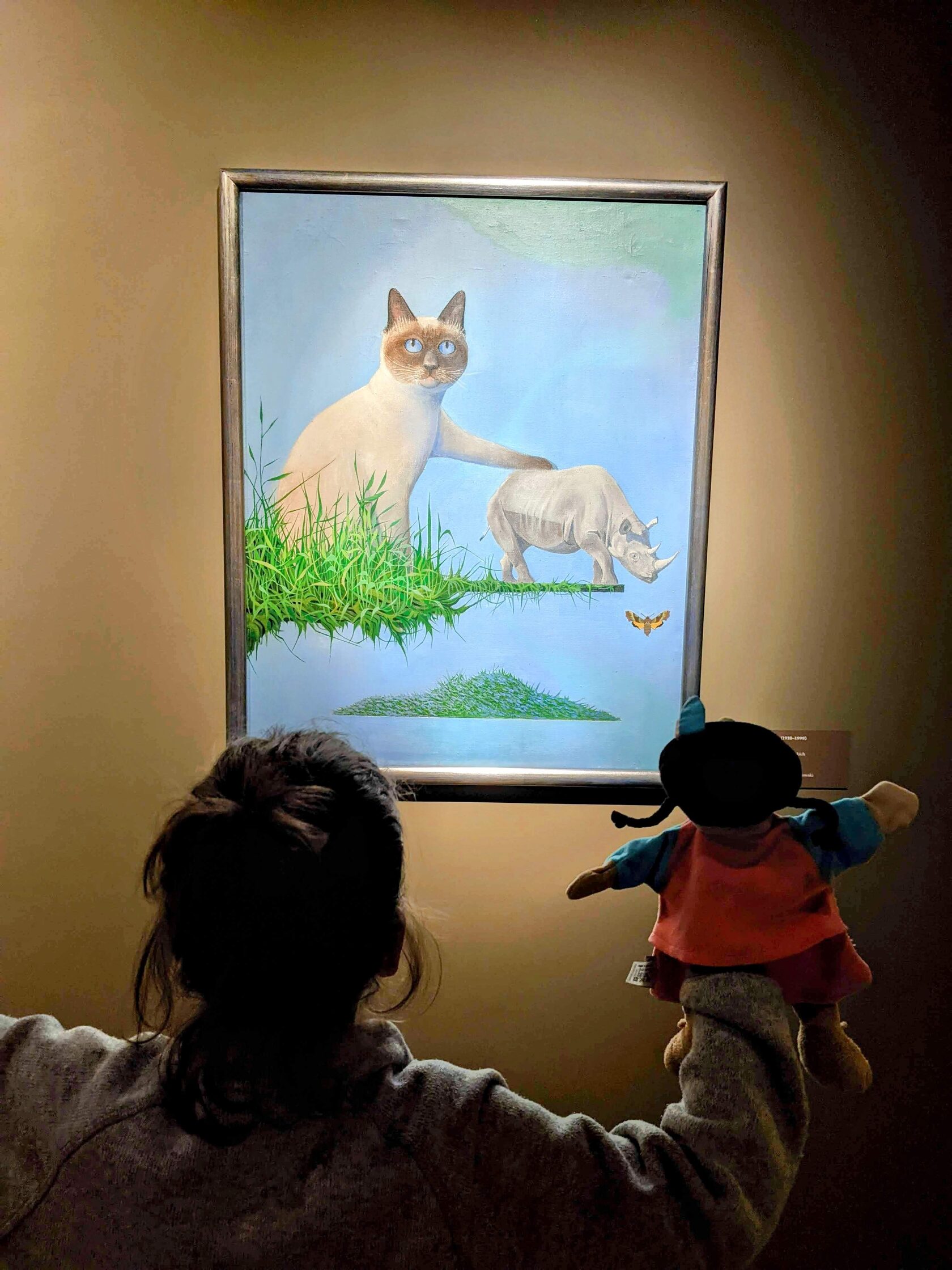When my daughter was seven years old, she stood in front of a group of strangers and delivered a five-minute presentation about the summer and winter solstices. It was a simple presentation. She drew pictures for her visual aids, crafted a miniature sun, moon, and earth that she used to demonstrate the movements of the planet around the sun, and prepared two activities for the end. She clearly did her research and was determined to share her findings with the group. When the presentation finished and she read the feedback out loud, she had an “aha moment” and acknowledged that it needed some improvement. I remember feeling amazed that she had accomplished something so remarkable at such a young age, and that she had the confidence and courage to stand up and speak to a group of people she did not know well. She took a risk, became vulnerable, and learned from constructive criticism. It was one of the proudest moments of my life as a parent.

From that day forward, I knew that teaching her presentation skills would be a critical part of her upbringing. Not only would it give her the ability to communicate her ideas effectively, but it would also help her to organize and share her thoughts, as well as help her to keep building self-confidence along with speaking and critical thinking skills that would benefit her in the future.
Charting A Path: How Cultivating Presentation Skills Lights the Way to a Future of Confidence and Clarity
There are many reasons why children should learn presentation skills. First and foremost, it helps them build self-confidence. When children know how to present themselves and their ideas in a clear and concise manner, they are more likely to feel confident and capable. This can lead to better social interactions, improved learning performance, greater autonomy, and even better career opportunities in the future.

Second, presentation skills teach children how to communicate effectively. In today's world, communication is everything. Being able to express oneself in a clear and concise manner is critical for success in any field. By learning presentation skills, children can learn how to organize their thoughts, speak confidently, and engage their audience in a topic.
Third, presentation skills help children to better understand the material they are learning. When children are required to present their findings, they are forced to think deeply about the material and organize their thoughts in a way that makes sense to others.
Finally, presentation skills help children to develop critical thinking and problem-solving skills as they are faced with challenges and have to think on their feet in order to effectively communicate their ideas.
Third, presentation skills help children to better understand the material they are learning. When children are required to present their findings, they are forced to think deeply about the material and organize their thoughts in a way that makes sense to others.
Finally, presentation skills help children to develop critical thinking and problem-solving skills as they are faced with challenges and have to think on their feet in order to effectively communicate their ideas.

Charting a Path Together: Empowering Our Children to Shine with Stellar Presentation Skills
So, how can parents help their children learn presentation skills?
Even more essential than the above is to incorporate regular practice sessions with our children. Family game sessions are a fun, didactic, and productive approach because everyone is involved. The following 10 games may seem simple, but they are incredibly effective in helping children develop their presentation skills; skills that will serve them well in any situation, whether they're giving a speech, making a presentation at work, or simply having a conversation with someone new.
- To set examples, we can attend public speaking events or workshops with our children to expose them to different presentation styles and techniques. This will give them the opportunity to observe and learn from experienced speakers.
- To allow them how to do it by themselves, we can encourage them to practice speaking in front of a mirror or video camera. This will help them become aware of their body language and delivery.
Even more essential than the above is to incorporate regular practice sessions with our children. Family game sessions are a fun, didactic, and productive approach because everyone is involved. The following 10 games may seem simple, but they are incredibly effective in helping children develop their presentation skills; skills that will serve them well in any situation, whether they're giving a speech, making a presentation at work, or simply having a conversation with someone new.

10 Family Games to Elevate Our Children's Presentation Prowess
- Storytelling Games: Encouraging children to tell stories or create their own can help them learn how to structure their thoughts, and ideas coherently, and communicate effectively.
- Role-playing: This game involves pretending to be someone else and acting out a scenario. Playing different roles in a skit or play can help children improve their public speaking skills and boost their confidence.
- Debate Games: These games involve arguing for or against a topic. Engaging in debates on various topics can help children learn how to develop their critical thinking, while both expressing their opinions and defending them effectively. You can start by allowing children to debate a topic with each other, such as "Which is better, cats or dogs?".
- Impromptu Speaking: Asking children to speak on a random topic for a minute or two can help them learn how to think on their feet, organize their thoughts quickly, and develop their storytelling skills.
- Show-and-Tell: This classic game allows children to practice presenting and describing an object to their friends or family members. This helps them learn how to speak in front of an audience and share their ideas effectively.

- News Presenter or Mock Interview: Pretending to be a journalist or an interviewer and having children practice presenting a news story or answering questions can help them learn how to speak with authority and confidence, and how to research, organize, and present information.
- Family Debates: Have children and parents debate a specific topic, such as "What's the best way to celebrate a birthday?" This helps children learn how to communicate with adults effectively.
- Skits: Children can act out a skit or play with their siblings or friends. This helps them learn how to work collaboratively and communicate with others.
- Pictionary: This game involves drawing and guessing words. Drawing and guessing games can help children learn how to communicate their ideas visually and develop their creativity.
- Charades: Similar to pictionary, this classic game involves acting out words or phrases without speaking. It can help children learn how to communicate non-verbally and act out their ideas, and also develop their body language.

While there are many good reasons to teach your children presentation skills, perhaps the most valuable benefit of this is the boost it gives to their self-confidence and development. When children stand up in front of a group and deliver a presentation, they are connecting with people on a deeper level and have the opportunity to inspire them. They learn to convey their ideas with clarity and conviction and to deliver a clear and concise message. They improve their critical thinking and creativity which enables them to analyze information, organize their thoughts, make connections between different ideas, and come up with new and innovative ones. By practicing all these skills, we will empower them to become confident and successful communicators, which will benefit them in their personal and professional lives.
In nurturing our children's presentation skills, we're not just teaching them to speak; we're empowering them to connect, inspire, and innovate. How might our child's future change if they could confidently share their ideas and inspire those around them?
